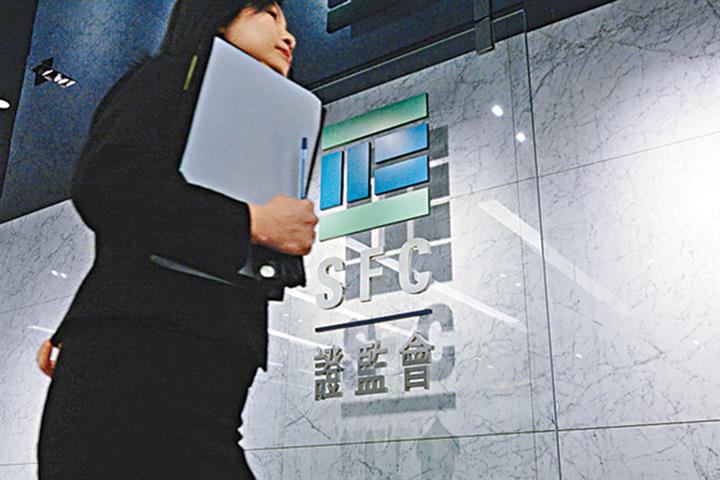 Hong Kong Bourse Watchdog Expands Loss 88% in Third Quarter Amid Weak Trading
Hong Kong Bourse Watchdog Expands Loss 88% in Third Quarter Amid Weak Trading(Yicai Global) Dec. 8 -- The Securities and Futures Commission, Hong Kong's independent securities and futures regulator, widened its loss in the third quarter due to reduced capital market activity.
The SFC made a loss of HKD178 million (USD22.9) in the quarter that ended Sept. 30, rising by 88 percent from a quarter earlier, the regulator in the special administrative region revealed in its latest earnings report. It was still profitable in the first quarter and earned HKD155 million in the third quarter of 2021.
From July to September, the SFC's revenue, mostly consisting of transaction fees, dropped by 47 percent to HKD325 million from a year earlier. Trading on the Hong Kong stock market has slowed amid relentless rate hikes of the US Federal Reserve and new Covid-19 outbreaks in the SAR and the mainland.
Income from levies declined by 40 percent to HKD371 million. Meanwhile, the SFC's net investment loss climbed by HKD23.7 million (USD3 million) to HKD77.3 million. Exchange gains slumped by 85 percent to HKD1.8 million (USD231,191).
The market has indeed been down. In the third quarter, the Hang Seng Index fell about 20 percent to 17,222.83 points. The Hang Seng China Enterprises Index, which includes Hong Kong-listed shares of Chinese firms that are incorporated outside the mainland, fell below the 6,000 mark on Sept. 28 to set a new low in almost 14 years.
Evidently, the Hong Kong Monetary Authority, the central bank of the SAR, made an investment loss of HKD265.5 billion (USD34.1 billion) via the Exchange Fund, a sovereign wealth fund, from January to September.
Business has been sluggish as from July to September, the SFC received 98 listing applications, down 51 percent from a year ago. The number of mergers and acquisitions and share buybacks dropped by 21 percent to 160.
The investment environment is especially difficult this year, with declines in all assets categories, said Eddie Yue, chief executive of the HKMA. Stock and bond markets have declined by more than 10 percent so losses for the whole year are unavoidable, he added.
Still, the Hong Kong stock market has been showing signs of bottom out since last month. As of yesterday, the Hang Seng Index has recovered by 32 percent since November.
The Fed is expected to dramatically slow the pace of rate hikes next year so the mainland's economic activity is expected to increase gradually, Everbright Securities International said. The Hang Seng Index may rise to a level of 23,000 next year, and the price-to-earnings ratio could basically reach the average of the past five years, it added.
Editor: Emmi Laine, Xiao Yi